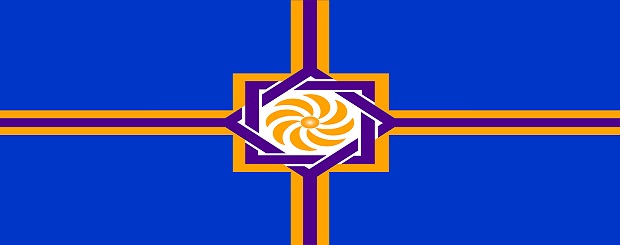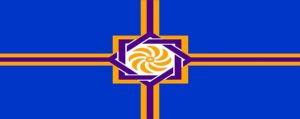
On the need to accept one general concept on the recognition and condemnation of the Armenian genocide and compensation for damage
April 24, 2020 – (Read also in Armenian)-(Lire aussi en Française)

By the 105th anniversary of the memory and commemoration of the victims of the Armenian Genocide, we showed our omissions in the issue of recognition and condemnation of the Armenian Genocide and compensation for damage for it.
To this day, pan-Turkism has not been condemned as a theory of xenophobia, intolerance and racism, there is no general point of view on the full period of the Armenian Genocide, two sides are not specified and presented, as are the participants who committed the same acts of the Armenian Genocide, and documents for full compensation for losses for all genocidal acts against Armenians …
Meanwhile, the need to adopt a common concept on the recognition and condemnation of the Armenian Genocide and compensation for the damage has long been ripe, based on the following facts and realities.
1. The theory of pan-Turkism was put into circulation in 1873-1874 as an instrument for the implementation of the Armenian Genocide, then it was adopted by successive governments of Turkey, and since 1918 also by Azerbaijan. (1), (2)
The genocide was committed against Armenians, Greeks, Assyrians and other peoples in 1894-1923. And with regard to the Armenians, it continues to this day.
According to some studies, during the years 1894-1924, the successive governments of Turkey – the Sultan, Young Turkish and Kemalist, destroyed more than 4 million citizens of the empire: Armenians, Greeks, Assyrians. (3)
2. The Armenian Genocide was carried out on the territory of the Ottoman Empire, Western Armenia, Cilician Armenia, Eastern Armenia, in the cities of Baku, Shushi … (4)
And during 1918-2016 it was carried out by successive governments of Azerbaijan in the so-called territories of the Republic of Azerbaijan – in Sumgait, Baku, as well as in Shushi, Nakhchivan, Artsakh, Gardman, Gandzak, Maragha, Shaumyan, Talysh and other Armenian territories.
3. The Armenian Genocide was condemned as early as 1896, 1909, 1915, 1919-1920:
– Hamidian pogroms of 1894–1896 was condemned by progressive figures of that time – Jean Jaurès, Victor Berard, Anatole France, Johannes Lepsius, Lynch and others.
– The handwriting of the pogroms in Adana in 1909 was the same: they were organized by the Turkish authorities, carried out nationalist crowds and Kurdish gangs, with the direct participation of the Turkish army. More than 30 thousand Armenians became victims of the Adana massacres.
In connection with the fact of the Genocide, a trial was organized, which, however, acquired a formal character. Moreover, a fire was artificially organized, the purpose of which was an attempt to burn and destroy judicial materials. However, many materials have been saved and are still being stored.
– On April 24, 1915, with the arrest of the Armenian intelligentsia in Constantinople, the largest wave of the Armenian Genocide began, which lasted until 1923 and, in fact, this has not ended to this day. As a result of the Armenian Genocide, more than one and a half million Armenians were killed and half a million deported, and became refugees and exiles.
4. On May 24, 1915, Great Britain, France, and Russia issued a Joint Declaration condemning the pogroms and the Armenian Genocidethe committed by Young Turks, in which the April massacre of 1915 was qualified as Turkey’s new crime against humanity and civilization. In particular, the text reads: “In view of those new crimes of Turkey against humanity and civilization, the Allied governments [of Russia, France and England] announce publicly to the Sublime-Porte that they will hold personally responsible [for] these crimes all members of the Ottoman government and those of their agents who are implicated in such massacres.” (5)
The Ottoman Empire, which carried out the Armenian Genocide, was one of the first to recognize and condemn it.
In 1919-1920, the Special Military Tribunal of Constantinople organized a trial of the leaders of the Young Turks – members of the Turkish government and governors, bringing them two charges: involving the Ottoman Empire in the war and organizing massacres, genocide and deportation of Armenians – subjects of the empire, on the basis of which the leaders of the Young Turks – Talaat , Enver, Jemal, Nazim, Kemal Bey, Jemal Azmin and Naim Bey, Behaeddin Shakir and others were sentenced to death in person and in absentia, which was subsequently carried out by the Armenian avengers, as part of the covert operation “Nemesis”. (6)
5. As of January 1, 2020, the Armenian Genocide committed in 1894-1923 in the territory of Western Armenia, Cilicia, the Ottoman Empire, Eastern Armenia, in the cities of Baku, Shushi was recognized and condemned by 39 states, including two superpowers – the United States of America and the Russian Federation, as well as leading countries in Europe, Latin America and the Middle East.
6. The damage caused to the Armenians and Armenia as a result of the Armenian Genocide is directly proportional to the above period of the Genocide, i.e. 1894-1923 and 1918-2011.
Assessment of the damage and calculation should be made on the basis of these facts and events, for each case having prepared separate packages of documents that can actually be applied both individually and together, both to condemn the crime and to compensate for the damage. (7), (8)
Given that:
– The Armenian Genocide is an international crime against humanity and civilization;
– The massacres and deportation committed in 1894-1923 against the Armenians constitutes a genocide in accordance with the UN Convention on the Prevention and Punishment of the Crime of Genocide of December 9, 1948; (9)
– The Armenian Genocide is a subject to conviction, in accordance with the UN Convention on the Non-Use of the Statute of Limitations for War Crimes and Crimes against Humanity of November 26, 1968. (10)
and the statute of limitations does not apply to him.
In conclusion, it can be stated that the Armenian Genocide continues to this day. It will continue until this crime is not condemned and the damage caused is not fully compensated. And until the Armenians will not create a firm and unshakable political, legal and national-state basis for ensuring the realization of their right to life, development and progress.
Armen Ter Sarkisyan
Chairman of the National Assembly (Parliament) of Western Armenia
April 24, 2020
– – – – – – – – – – – – – – – – – – – – – – – – – – – –
References in Armenian:
1. Ովքե՞ր էին պանթուրքիզմի հիմնադիրները։ http://gov-wa.info/?p=3313&lang=hy
2. Ջոն Կիրակոսյան, «Երիտթուրքերը պատմության դատաստանի առաջ», գիրք II, Երեւան, 1983:
3. Israeli Researchers: Turkey’s Greek, Armenian, and Assyrian Christians Destroyed by “30-year Genocide” – https://www.breitbart.com/europe/2019/05/19/israeli-researchers-turkeys-christians-victims-30-year-genocide/
4. Հայերի ցեղասպանության ճանաչման, դատապարտման եւ հատուցման հարցերի շուրջ Արեւմտյան Հայաստանի Հանրապետության (Հայաստան) ռազմավարության մասին։
http://gov-wa.info/?p=4265&lang=hy
5. Մեծ Բրիտանիան եւ Հայկական հարցը:
https://hy.wikipedia.org/wiki/%D5%84%D5%A5%D5%AE_%D4%B2%D6%80%D5%AB%D5%BF%D5%A1%D5%B6%D5%AB%D5%A1%D5%B6_%D6%87_%D5%80%D5%A1%D5%B5%D5%AF%D5%A1%D5%AF%D5%A1%D5%B6_%D5%B0%D5%A1%D6%80%D6%81%D5%A8
6. Երիտթուրքերի դատավարությունը։ http://www.genocide-museum.am/arm/online_exhibition_9.php
7. Ջոն Կիրակոսյան, «Երիտթուրքերը պատմության դատաստանի առաջ», գիրք I, Երեւան, 1982:
8. ՄԱԿ-ը հարցապնդում է յղել Թուրքիայի Հանրապետութեանը՝ 1915-1923-ին տեղահանուած հայերի մասին։ http://asbarez.com/arm/348948/ՄԱԿը-Հարցապնդում-Է-Յղել-Թուրքիային՝-1915-1923/
9. «Ցեղասպանության հանցագործությունը կանխարգելելու եւ դրա համար պատժի մասին» ՄԱԿ-ի Կոնվենցիա, 9 դեկտեմբերի 1948 թ.։ https://www.arlis.am/DocumentView.aspx?DocID=75835
10. «Պատերազմի հանցագործությունների եւ մարդկության դեմ հանցագործությունների նկատմամբ վաղեմության ժամկետ չկիրառելու մասին» ՄԱԿ-ի Կոնվենցիա, 26-ը նոյեմբերի 1968 թ.։ http://lousavor-avedis.org/?p=8581
//parliament-wa.info/
